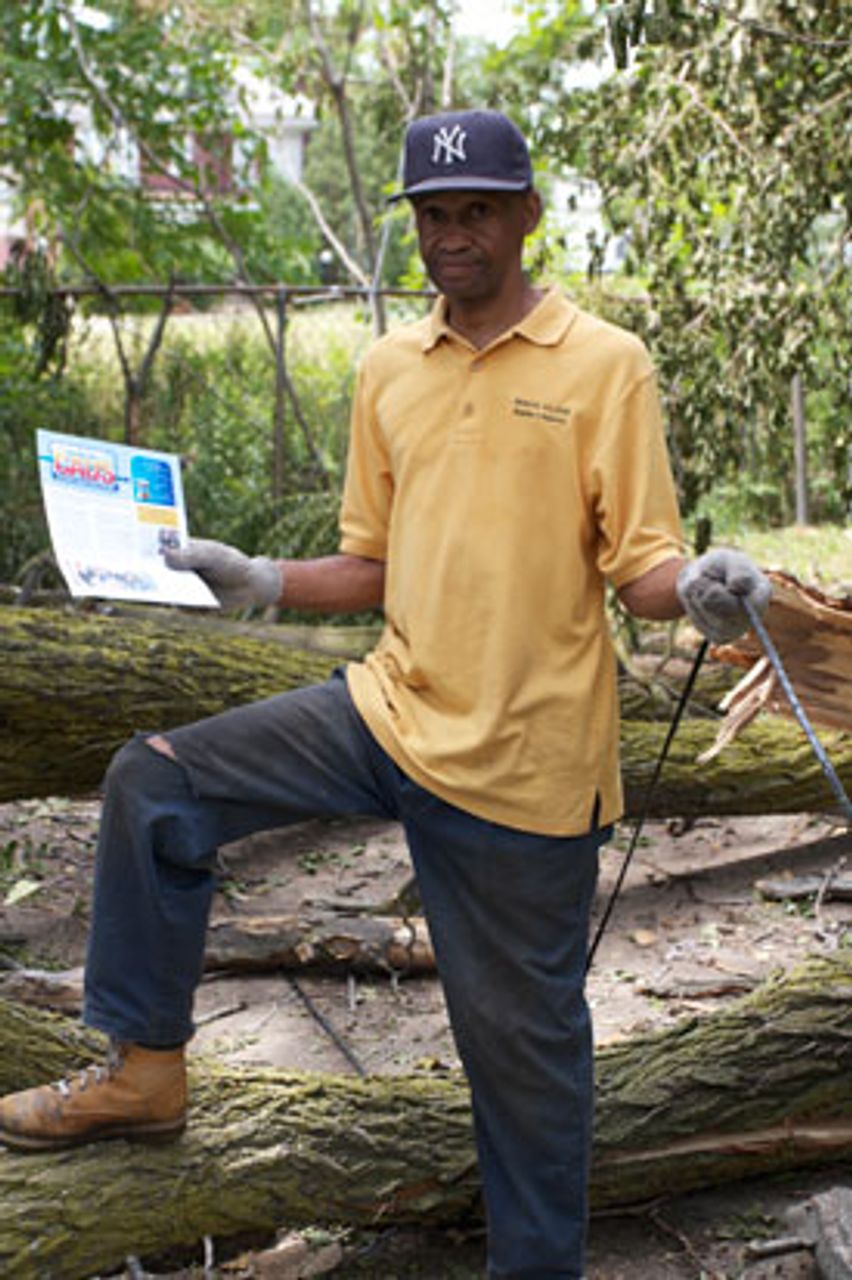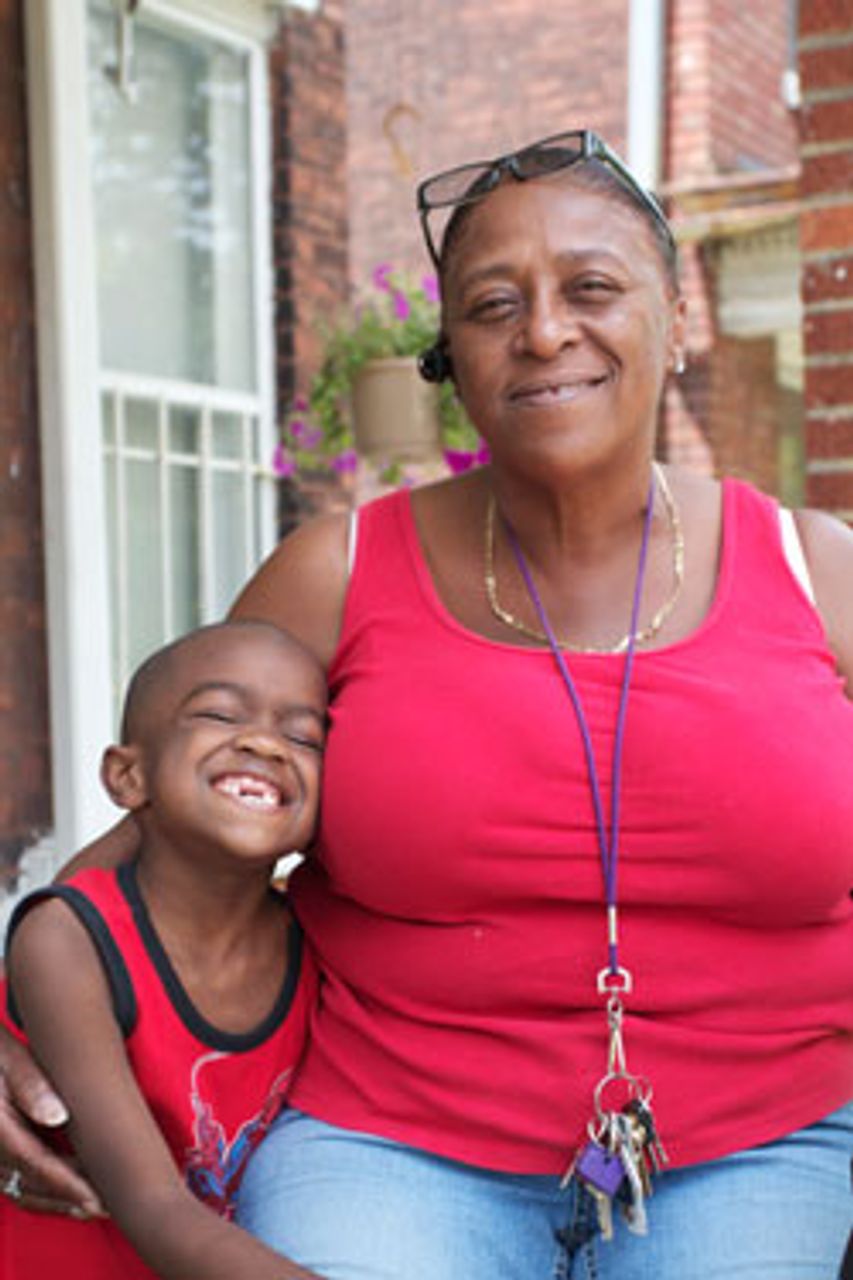Five full days after a summer thunderstorm hit Detroit, thousands of residents were living without electricity in the sweltering heat as a result of the antiquated delivery systems common in the US and the slow response by DTE Energy.
Living without air conditioning, lights or electricity for breathing equipment is a life-threatening condition for the many elderly, asthmatics and disabled in the area.
On July 2, a thunderstorm with 64-mile-per-hour winds brought down 500 power lines along with hundreds of utility poles and trees in affected parts of the region. According to DTE Energy, the local utility company that covers Detroit, 125,000 homes and businesses in the area were affected by the blackout, which qualified the event as a “catastrophic condition.”
Unlike Germany, with an average of 21 minutes of downtime a year, or Europe where power lines are generally underground, every time there is a hard rain or the wind blows more than 30 miles an hour in the metro-Detroit area, major power outages affect tens of thousands of people. Just last September, this type of storm caused 85 homes in Detroit to burn to the ground (see “Fires burn throughout Detroit“).
The storm affected a wide area of metropolitan Detroit, from St. Clair Shores to Down River communities south of Detroit.
During the days afterward, tens of thousands of families were forced to dispose of hundreds of dollars of food. Just two days before the July 4 Independence Day holiday, most families had stocked up for cookouts and get-togethers.
They will receive no reimbursement for this loss. Under standards defined by the Michigan Public Service Commission, customers who experience “an outage of more than 120 hours under catastrophic conditions” are eligible for an insulting $25 credit from the billion-dollar utilities companies.
“Its been tough,” stated resident Steve Toth to the Detroit News. Toth lives with his 80-year-old mother, who has asthma and a heart condition. The Toth family lost $350 worth of food purchased on July 1 after the elderly mother received her Social Security check and deceased husband’s pension. The income spent on food was more than likely their allotment for the entire month.
The downed power lines also put the lives of residents suffering from physical disabilities, old age, or asthma in jeopardy. Detroit is a city where one in three residents receive disability benefits.
Toth’s lights came on by Wednesday, but the frayed lines almost immediately burst into flames. “It’s a living hell,” stated Toth.
In the east side location where Democratic Mayor David Bing resides in the Manoogian Mansion, power was restored almost immediately. Residents two blocks away, however, told the World Socialist Web Site that they were still without power on Wednesday afternoon, five days later.
One block from the mayor, the 1,500 residents at the Colony Arms Apartments on East Jefferson had to rely on the Salvation Army for food and drinks. Other residents in the area were left to clean up debris that had either been knocked down by the storm or cut down by DTE or the city.
 Allah Young holding fallen power line, standing
Allah Young holding fallen power line, standingon downed trees in his yard
“Well, you know that’s politics,” stated Allah Young, who lives on Cadillac Street, two blocks from the mayor. “They will take care of them. They don’t care about the little people.”
The WSWS spoke to Young, a retired teacher and coach at Murray Wright High School, and his neighbor about their experiences with the outage.
“Last Saturday, the storm came through,” stated Young, “and knocked trees onto streets, took out cable and DTE power lines. The power went out on Saturday, and now it is Thursday, July 7, and power is still not restored throughout the entire area. There are still pockets without power.”
Young said the lack of power forced a lot of people outdoors. “On the holiday [4th of July] most people with company entertained them in front of the house or in the backyard because they had no power inside the house.”
“A lot of people lost their food. They had an excess amount of food because of the holiday weekend, but after the storm it deteriorated and they had to throw it out. Most of the stores in the area lost their power and were closed for three days.”
Young said he blames DTE Energy for the lack of response to the residents’ needs. “I feel DTE is slow when it comes to initiating emergency services, and their response could be a lot better than what it is,” stated Young. “You would think that with a storm of that magnitude they would have crews work right through to get it repaired. When they did come out, they would just cut trees and lay it on people’s sidewalks.”
“Everyone would blame it on someone else. The city would blame the lighting company [Detroit Lighting Company], and the lighting company was blaming them. The common people had to suffer. Now I have to pay for all the repairs myself. If I was an older person, I couldn’t take care of this.”
 Andrea Copeland and son Tyrese
Andrea Copeland and son TyreseAndrea Copeland, another resident in the area, added, “My cable, phone, and Internet are still off. The tree in the next yard is on my line, and they keep telling me it will come back on. When I call them about my phone being off, they just tell me pay my bill, I’ve been paying my bill. All they care about is the money.”
Andrea explained that having an Internet connection was critical for her job. “I work for the state, but I can’t work without the Internet,” stated Andrea “They may have e-mailed me something, but I can’t do it because I can’t check my e-mail.”
Andrea, who has four children, said it was especially hard taking care of the children during the outage.
“When the power was off, it was hard to take care of the kids. I have a foster child; he was abused at 4 months old and has medical problems. He needs air conditioning.”
“The mayor was fine when the power went off, and he lives right over there. He probably has a generator. The city just says ‘we will get to it,’ but they aren’t doing anything. People are cleaning up the trees themselves.”
